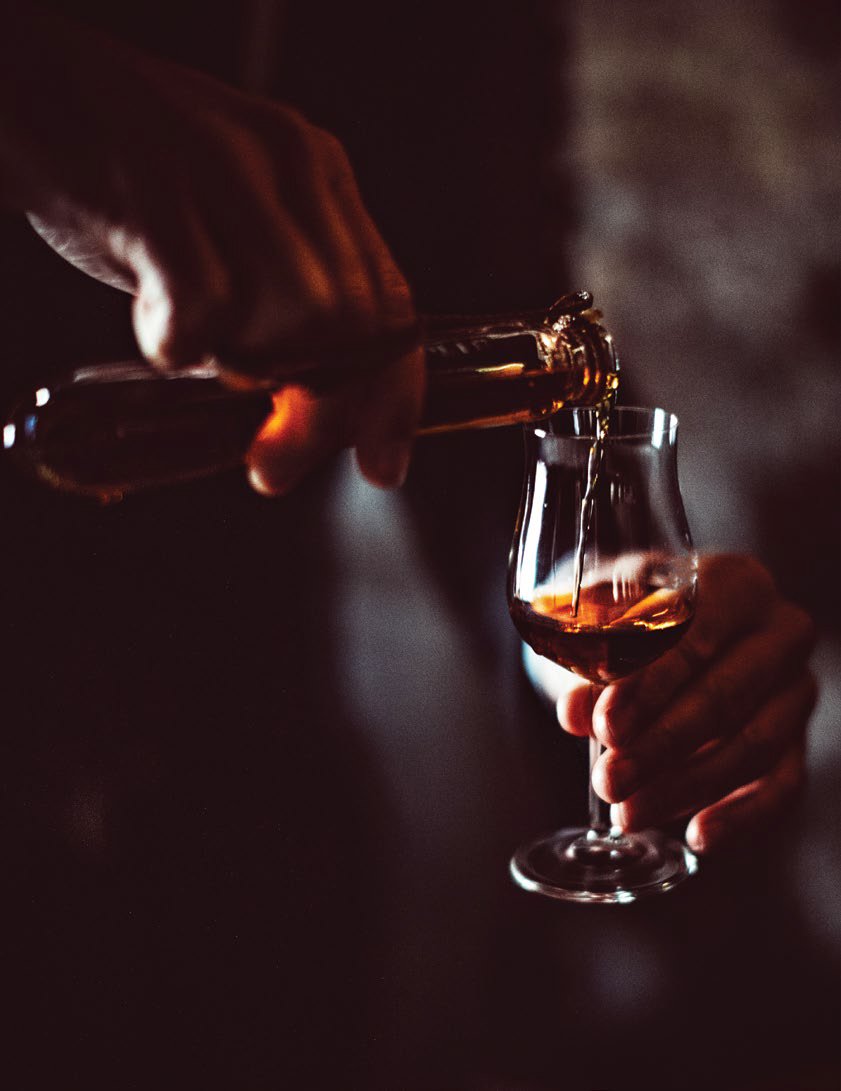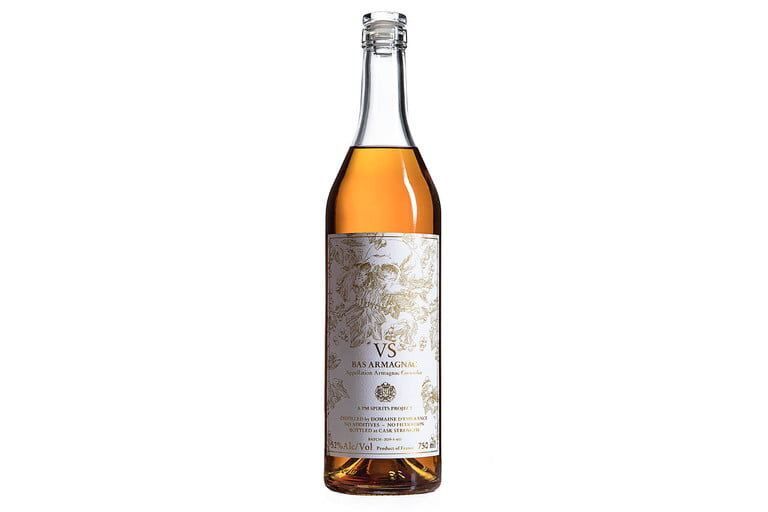How Armagnac is Made
“Essentially, Cognac is more like Tequila, and Armagnac is more like mezcal in the way it’s produced,” says Nicolas Palazzi, owner of importer and distributor, PM Spirits, “but not in flavor [although it can occasionally share similar notes with the agave spirit].” Armagnac is a bit more artisanal in nature, and every producer creates a product to their own proof and style making it a fan favorite for spirit nerds.
Armagnac is allowed to use 10 grape varieties in production, but typically only use four: Ugni blanc, Baco, Folle Blanche, and Colombard; whereas in Cognac they use around 99% Ugni blanc. More variety in the raw material allows for Armagnac to express a diversity in flavor that Cognac cannot. When you also consider the terroir — the soil, climate, and hand of the maker — Armagnac truly distinguishes itself in character.
“There is something really interesting in picking grapes and making a product that has a true personality and seeing that product at a stage where it hasn’t become a very popular spirit [like Cognac] that has been modified to try to appeal to the general public,” says Palazzi. “Armagnac is very terroir-driven, it feels like you can connect with the history of the land and its rich history.”
In terms of distillation, 95% of Armagnac production is distilled with an alembic column still, whereas Cognac has to be pot-distilled, Palazzi notes. “Some are using pot still as well,” he says, although it’s a rarity.
After being distilled, the liquid is typically aged in 400-liter French oak casks — typically local, Gascony oak — and is then classified as VS, VSOP, Napoleón, or XO (Hors d’âge), depending on how long it has been aged for, with XO being the oldest age statement meaning the distillate has seen a minimum of 10 years in the cask. It’s also common for Armagnac producers to release vintages, like wine, but this will be more of a rarity as the category continues to rise in popularity.
After aging, the Armagnac is either bottled at cask strength, or proofed down. “The reason why Cognac is typically 40% ABV is to stretch out the amount they’re able to produce because of the demand,” Palazzi notes. “In Armagnac, you’ll find more full-proof bottling because they aren’t under the pressure of hitting numbers so they can focus on creating the best product possible [regardless of proof].” This means that each bottle will have its own distinct character, which isn’t always the case with other brandies.
Some producers to note are: Domaine Boignères, Château de Pellehaut, Domaine Espérance, Domaine d’Aurensan, but there are many others creating exceptional brandies as well in the region.
READ/LISTEN HERE





